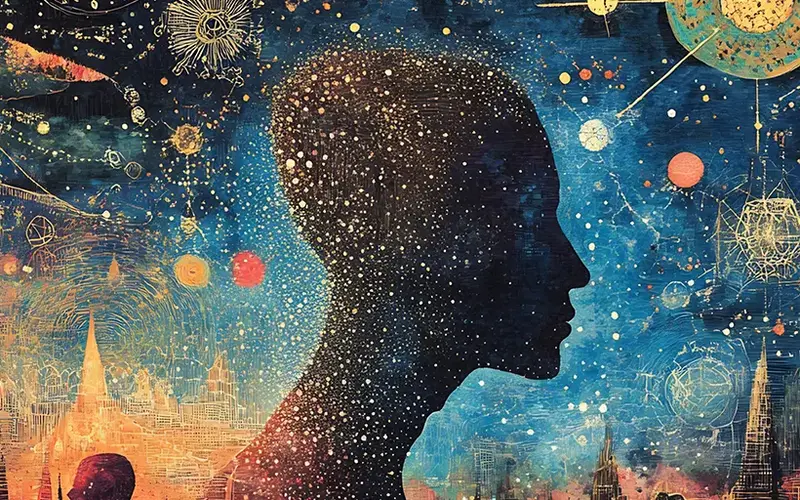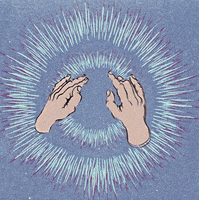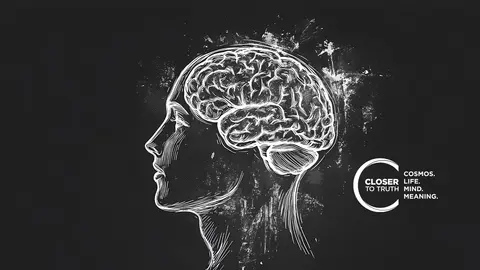Science must move from materialism to mystery
“When the whole world is running headlong towards the precipice, one who walks in the opposite direction is looked at as being crazy.”
“The whole educational and professional training system is a very elaborate filter, which just weeds out people who are too independent, and who think for themselves, and who don’t know how to be submissive, and so on — because they’re dysfunctional to the institutions.”
Granada Theater, Dallas, 2010. A cold Sunday just after New Year’s, and the three of us, friends who felt like brothers, slid into the crush near the front. The Avetts stepped out with their arsenal of strings. Upright bass, a mournful cello, banjo bright enough to cut through winter. I felt the first shiver at the downbeat and the second when their voices locked. Two bearded men, no artifice, just the kind of harmony that makes you remember the names of your ghosts. I was carrying a lot then, fear and pride and unasked questions, and the music loosened the knots without humiliating me. It told the truth in a voice I could stand. By the end, I wanted to call people I had drifted from. I wanted to say things that had become hard to say. Some songs do not just play. They give you permission.
… Dumbed down and numbed by time and age
Your dreams they catch, the world, the cage
The highway sets the traveler's stage
All exits look the same
… Three words that became hard to say
I, and love, and you
For decades, materialism has been the dominant philosophy in both physics and neuroscience.
In this piece, theoretical physicist and neuroscientist Àlex Gómez-Marín argues that the strict gatekeeping of alternatives to materialism is itself the most dangerous form of pseudoscience. True progress, he suggests, requires us to face what our current theories cannot yet explain.
“Psychical research offers a deluxe mirror to examine whether we live in a world where science thrives uncensored,” Gómez-Marín writes.
Spotify’s free tier finally lets you pick a song and press play. I like the idea in theory. In practice it lands as a late concession in a market that has been slowly hollowing itself out. Lossless arrived the same week, which is nice for sampling new music, but I do not treat streaming as ownership anymore. I use Spotify to scout. I find tracks through other people’s playlists, make a note, and then I go collect the song for my own library if it matters to me. That is the only way this keeps feeling like music rather than content.
The same logic applies to movies and TV, except the gap is even more obvious. Services love to stamp high def or 4K on a page, but the quality is not the same as a disc or a well made file. A UHD Blu-ray can push far higher bitrates than a typical 4K stream, which means more real detail and fewer compression smears in dark or fast scenes. Discs also carry lossless audio formats like Dolby TrueHD, while the stream you get from an app is usually the lossy, bandwidth friendly version. If I care about how a film looks and sounds, I keep my own copy. The difference is not placebo.
Meanwhile the platform layer has been busy rearranging the walls. Google just announced it will require developers to verify their identities before their apps can be sideloaded outside the Play Store, starting in a few countries in 2026 and expanding globally in 2027. They frame it as safety. Maybe it is. It also narrows the open space that made Android feel like a real computer in your pocket. You can call that nuance. It feels like a slow squeeze.
On the desktop, Chrome has marched ahead with Manifest V3 and the deprecation of older extensions. The end result for normal people is simple. Many of the ad blockers they relied on either broke or had to accept limits, and the experience of the modern web slid further into sludge. If you have felt like Chrome got worse at protecting your attention, you are not imagining it.
YouTube doubled down too. The service has been in a public fight with ad blockers since 2023 and ramped enforcement again this year. More ads, longer ads, pause screen ads on TVs, and videos that refuse to play if a blocker is detected. I understand their business case. I also understand why people feel pushed toward alternatives when a three minute clip turns into a five ad obstacle course.
So yes, Spotify giving free users on demand playback is cool. Lossless is cool. In the bigger picture it has been a land run of corporate greed the last couple of years. Prices go up. Quality goes down. Control tightens. The exit door gets smaller and is labeled as safety. People notice. I am seeing more curiosity about how to take care of your own media, especially among younger listeners who grew up inside apps and are now learning there is a world outside the feed. That is healthy.
For me the solution is simple and boring. I do not pay for music or TV streaming. I use Spotify for discovery, then I collect what I love. I maintain a private digital library of films, shows, audiobooks, and music. It is organized. It is backed up. It is mine. When a service drops a title or wrecks the compression, my copy does not care. When a platform changes the rules, my library keeps playing.
If that sounds old fashioned, good. The future I want is hybrid. Stream to explore. Collect to keep. Build a home archive that reflects your taste and survives the next round of product decisions. The platforms can be windows. The vault should be yours.









